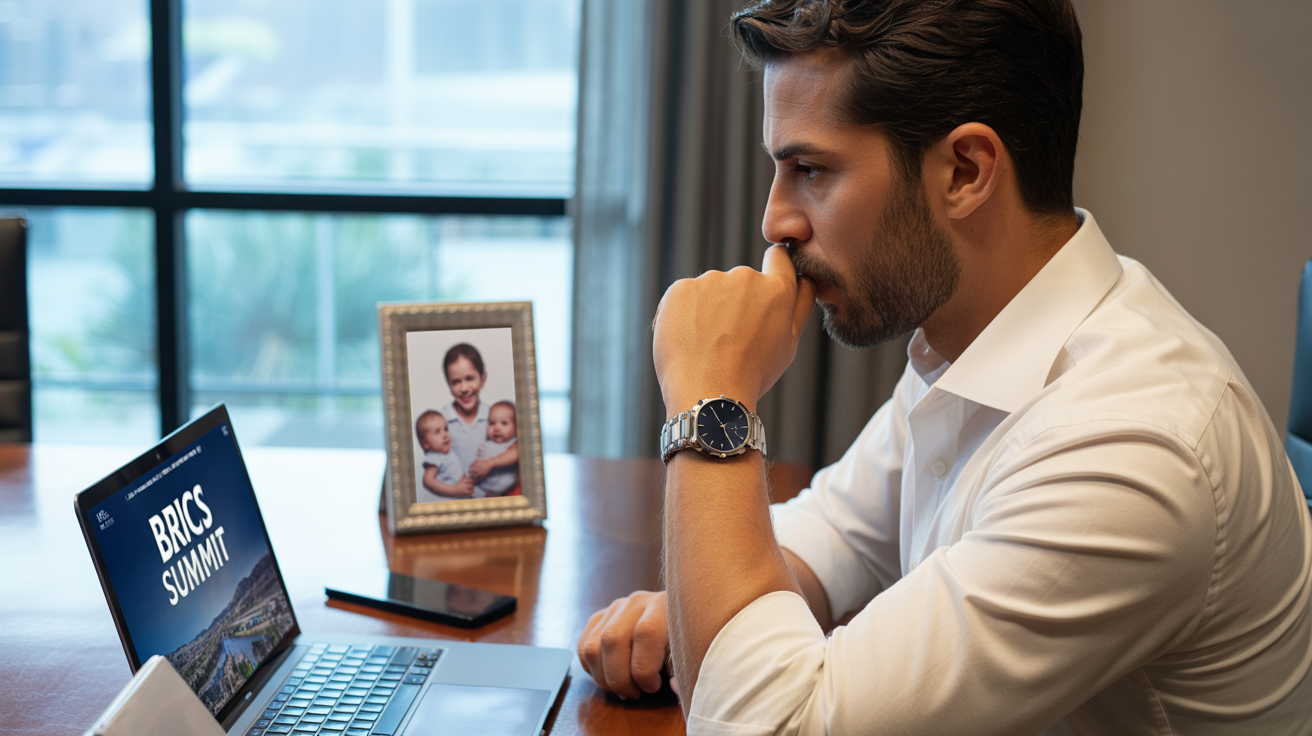The Trap of Certainty
There are a ton of pressing topics right now — important for your family and wealth in the next 5-10 years — where no certainty can be had, but require you to lay the ground work now.
Will BRICS replace the current US-based hegemony? Will there be bank failures in the next financial crisis? Will your country’s policies shift dramatically in the next five years?
The social media and news space has a non-ending buzz of what the influencers and “experts” predicting what will happen. The result? People getting pulled into extremes and certainty of a particular outcome.
The problem isn’t having beliefs or conviction of an outcome. The problem is letting those beliefs dictate all your actions.
The BRICS Example
Take BRICS. It’s a formidable force — 56% of the world’s population, 44% of global GDP. When that many countries are exploring alternatives, it means the current arrangement isn’t serving them, even if it’s still in use.
Some people are certain BRICS will reshape the global economic and financial order. Others are certain it will collapse under its own contradictions and internal conflicts.
I can make arguments on both sides, with endless scenarios that could play out. I do have conviction in what I think is most likely going to happen…
BUT I don’t bet on my family’s future on getting this right.
Here’s what I’m doing action-wise:
I’m studying Brazil from the inside while living here. I’ve friends and business associates in many of the BRICS+ countries. My financial hub is still primarily in the U.S., because it has great financial infrastructure and largely unbeatable credit cards.
My investment portfolio has BRICS exposure but it is a fairly small position.
If I’m right about BRICS in 3-5 years, great. My portfolio will grow tremendously. If I’m wrong, business as usual with my US-based assets.
That’s the point. My beliefs and my actions are separate things.
The Risk of Overcommitment
I see families continuing to ignore the changing times. They stay committed to where they live and work. They never plan to move. They keep all their wealth in one country or bank, all their income from their employment, all their legal status tied to their home country.
They commit to believing that they view of the world is what is going to happen, and their actions reflects so.
Some of my friends in Canada will likely never move out of the country, despite believing it’ll turn around yet complain about how the country is going down hill.
My point is…
You can have all-in beliefs. You can have unbeatable conviction of an investment thesis. You can commit capital, time and physical presence based on your beliefs.
However, “oops” doesn’t cut it if your family’s wealth disappears because it’s all in one bank account. Or gets inflated away because of monetary policy you didn’t see coming. Or becomes inaccessible because of capital controls in a crisis.
Don’t bet your family’s future on you getting it 100% right.
How the Best Strategists Think
From military strategists to top financial traders, they operate the same way: they have a thesis and hedges in place should things not go their way.
Battle plans are drawn with contingencies. No general assumes everything will go according to plan.
The same applies to planning for your family.
You don’t have to believe you’ll need to call on your Plan B. You don’t have to believe BRICS will or won’t work. You don’t have to predict which banks will fail or which currencies will hold value.
But what if the unexpected outcome happens?
What if you need your Plan B and you haven’t built one? What if you held only dollars with no way to move your money into another currency? What if you stayed in one country because you were certain things would never change, and then they did?
Actions Without Certainty
Here are examples of what separating belief from action looks like in practice:
- If the topic is currency and monetary systems: Open remote bank accounts to hold a portion of your savings in different currencies. You’re not abandoning your belief in the US dollar — you’re just not betting your entire family’s liquidity on it.
- If the topic is geopolitical shifts: Visit a place and explore a potential Plan B. You’re not moving tomorrow. You’re just building on the ground experience in case your primary location becomes less viable.
- If the topic is economic stability: Diversify or add income streams across geographies. You’re not saying your current income will disappear — you’re just not making it your only source.
The general principle: Think of important decisions that will affect your family. Examine if there’s a chance things don’t go the way you imagine, with significant consequences. Then place a small hedge on the other side.
The smartest people I know — wealthy, successful, experienced — never put their families in a position where they have to be right. They position themselves to capture opportunities if their thesis plays out. And they have alternatives ready if it doesn’t.
Start Small
You don’t need to overhaul your entire life today.
Just ask yourself: What’s one belief I’m operating on that — if I’m wrong — would seriously impact my family?
Then take one small action to hedge it.
Open an account in a different jurisdiction. Visit a second location. Explore an alternative income stream. Learn about residency options in another country.
For example, Mexican temporary residency can be obtained in a single 30-minute appointment — one of the easiest geographical and political hedges you can put in place.
You’re not abandoning your beliefs. You’re just refusing to let your family’s future depend on you being perfectly right about an uncertain world.
That’s not paranoia. That’s strategy.

